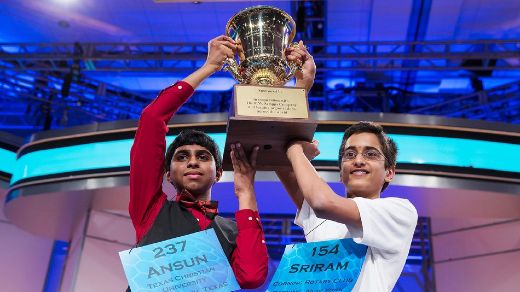I have never been a fan of rewriting the rule book when it comes to sports. I wept a little on April 6, 1973 when New York Yankees first basement Ron Blomberg strode to the plate as baseball’s first designated hitter. I threw nachos at the screen the moment I first heard a football announcer say, “this one’s gonna be reviewed.” And I nearly threw up when I initially saw a garish looking belly putter resting on some professional golfer’s midsection as he lined up his winning stroke. Thankfully, PGA officials came to their senses and will outlaw the “anchoring” of putters in 2016.
But something needs to be done, quickly, to prevent a repeat of a recently hard fought event featuring two identically matched contestants. For hours, stretching into days, these gladiators punched and counterpunched in front of an enraptured audience and ESPN commentators who, in the midst of marveling at the challengers’ single-minded focus, speculated on who would make the first mistake.
And then, suddenly, a tie was declared. That’s right, a tie.
Just like that, the 2014 Scripps National Spelling Bee was history. Even worse was the lame excuse offered up by Bee organizers: They ran out of words.
No more words? That’s like McDonald’s running out of burgers, Bill Gates running out of money or the Chicago Cubs running out of excuses. Webster’s Third New International Dictionary, the Bee bible, contains more than 472,000 words. And that’s not even half of the 1,025,109.8 words that existed in the English language as of January 1, 2014, according to the Global Language Monitor. I’m not sure where the .8 comes from but who am I to argue with an organization whose employees apparently count words for a living?
Granted, many words aren’t as complex as “feijoada” (a Brazilian stew made with beef, beans and pork), “holluschick” (a young male fur seal), and “augenphilologie” (a word you will never use in your lifetime), all of which were correctly spelled by the two finalists, 13-year-old Ansun Surjoe and his nemesis, 14-year-old Sriram Hathwar. But stranger things have happened in the heat of battle, particularly when letters are involved. Just ask recent Wheel of Fortune contestant Julian Batts. The Indiana University student simply had to read the completely revealed phrase “Mythological Hero Achilles” to receive a car and a trip to London but pronounced the last word “Aych-a-lis.” I’m not saying seasoned spelling veterans like Surjoe and Hathwar would have stumbled on a commonly used yet tricky to spell word like “vacuum” or “accommodate” but we’ll never know now, will we?
Under contest rules, when only two finalists remain, a 25-word championship list is used to determine the winner. When that list is exhausted, co-champions are declared if both are still standing. It’s only happened four times in the Bee’s 87-year history. I vow it will never happen again; not if Bee organizers adopt a few modest additions to the antiquated rule book.
1) Contestants must correctly spell their foe’s name. Surjoe and Hathwar may have rolled through this challenge but the 2008 contest would have been interesting, considering Anamika Veeramani bested Shantanu Srivatsa.
2) Get the audience more involved. Allow heckling after eight rounds, beer sales after 10.
3) In round 12, rather than spell the word, contestants must use it in a text message and correctly type it to the judging panel. I can almost see the beads of sweat forming on Hathwar’s forehead as his fingers hover over his iPhone’s “send” key after tapping out, “Mom made some yummy Feijoada for dinner tonight.”
4) With 15 rounds complete, contestants must spell words while simultaneously running on a treadmill.
5) After 20 rounds admissions officers from all eight Ivy League schools will sit in the front row, randomly displaying signs with messages like, “Get this one right and we’ll talk scholarship.”
Surely someone will have cracked by this point. If not, Bee officials would still have one trick up their sleeves.
They could substitute a designated speller.
<em>Copyright © 2014 Greg Schwem distributed by Tribune Content Services, Inc.</em>




The F-Bomb Has Gone Mainstream — And Nobody Cares Anymore